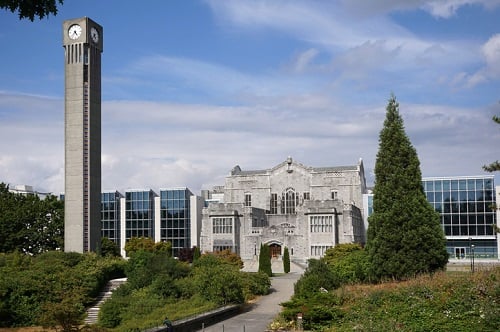A yearlong pilot project to include medical cannabis in the students' health plan has been approved

Following a 2015 move by the University of Waterloo, UBC Okagan (UBCO) is including medical cannabis coverage as part of its health plan for students.
The coverage will be offered as part of a pilot project approved by the university’s students’ union, reported CBC News. It will start on Sept. 1, 2018 and will conclude on Aug. 31, 2019.
“What we're hoping ultimately is that it will improve the health and well-being of the student population by providing them with effective options for health care,” said UBCO psychology professor and cannabis researcher Zach Walsh.
Walsh noted that many medications are already included in the health plan, and since cannabis is already often prescribed and recognized as medicine by many physicians, it also deserves coverage.
According to Michelle Thiessen, chair of Canadian Students for Sensible Drug Policy Okanagan, $20,000 of the medical budget has been earmarked for a year of coverage. It will apply only to students who are already registered as medical cannabis patients through Health Canada.
“We're going to collect data during this year and see how we can make this program better,” Thiessen said. “If the student union decides it's something they want to continue offering, then we can make an even better program.”
The campus is located in Kelowna, where dispensaries have been set up for years and marijuana crops are plentiful. According to her, this has made the campus ideal for cannabis research and, potentially, medical cannabis coverage.
“Without ... the student union president and other members on the board seeing the potential and importance of a program like this, it wouldn't have been adopted,” said Thiessen, who has been floating the idea to the student union for around two years. As it stands, she considers the project to be conservative and have limited potential for abuse.
“When you think about $20,000, we're not going to be able to serve that many students," she said.
Students wishing to be included in the program will have to apply with an impartial third party, who will determine their eligibility and the type of coverage they require.



